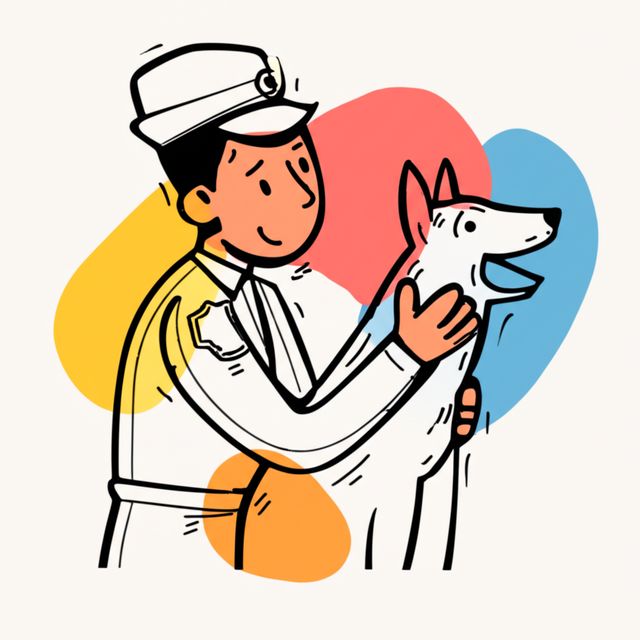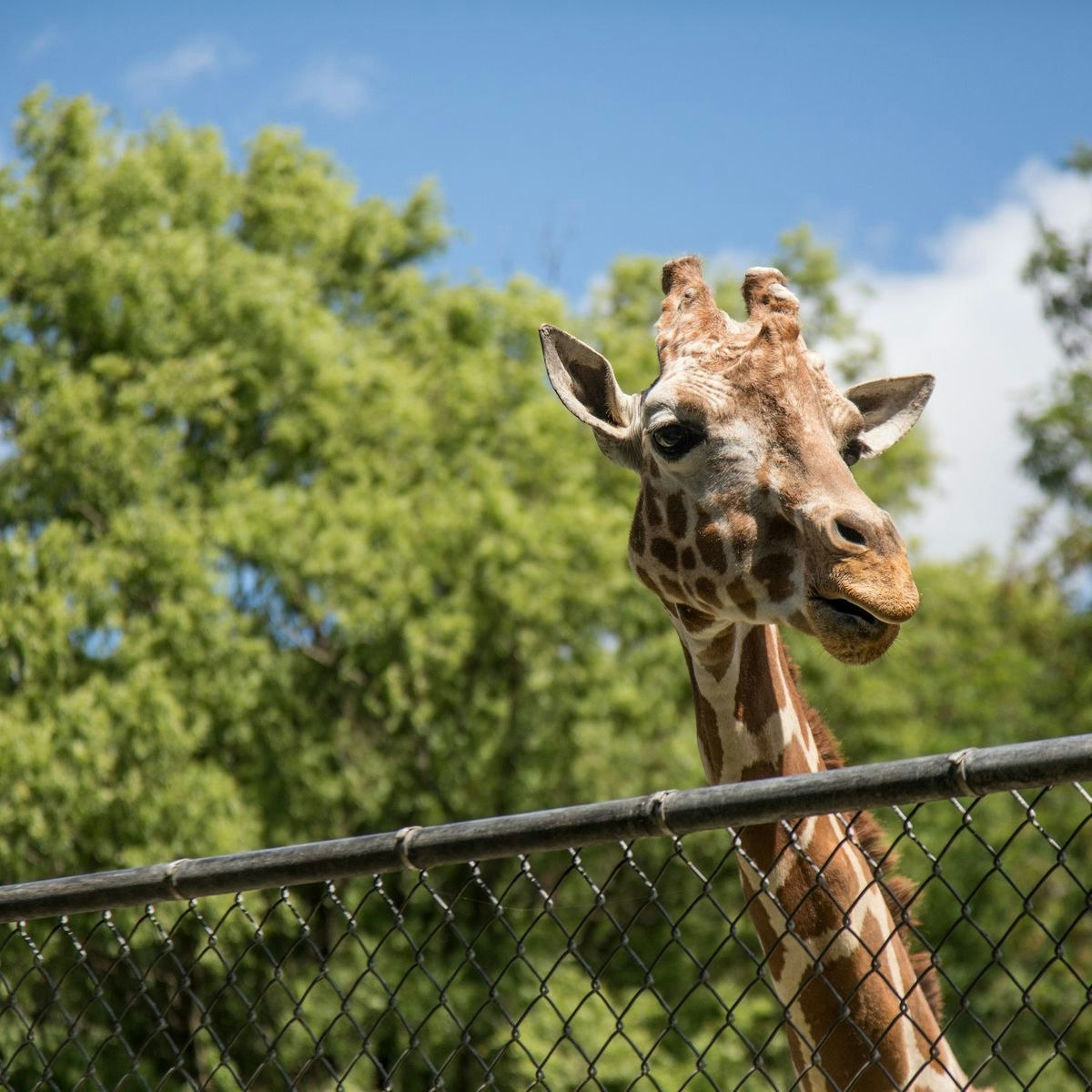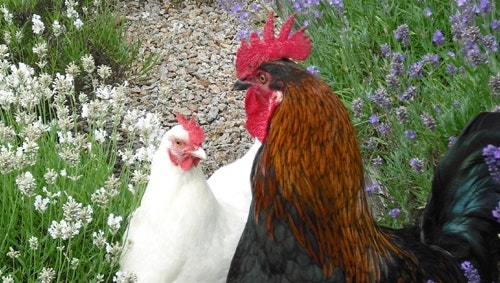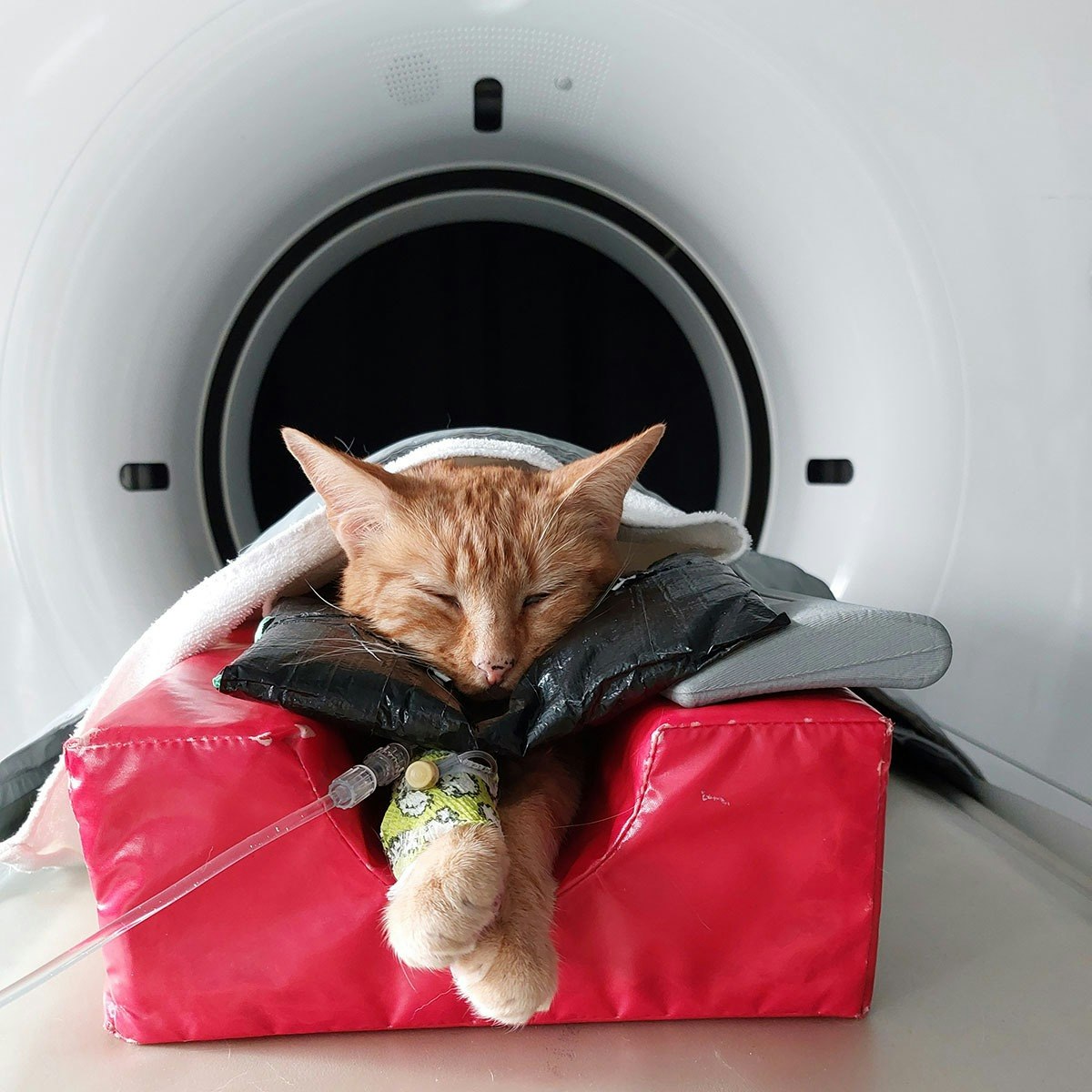Animal Welfare Officer
Animal Welfare Officer: A Comprehensive Career Guide
An Animal Welfare Officer plays a crucial role in safeguarding the health, safety, and well-being of animals. This profession involves enforcing laws related to animal care, investigating reports of cruelty or neglect, and educating the public about responsible animal ownership. These officers act as advocates for animals that cannot speak for themselves, ensuring they receive proper treatment and protection under the law.
Working as an Animal Welfare Officer can be deeply rewarding for individuals passionate about animals. It offers the chance to make a tangible difference in the lives of vulnerable creatures, rescue animals from harmful situations, and promote humane treatment within the community. The role often combines fieldwork, investigation, and education, providing a dynamic and engaging work environment for those who thrive on variety and challenge.
What Does an Animal Welfare Officer Do?
Understanding the day-to-day responsibilities and the broader scope of an Animal Welfare Officer is key to determining if this career path aligns with your interests and abilities. This field requires a unique blend of compassion, resilience, and practical skills.
Daily Tasks and Core Responsibilities
The daily routine of an Animal Welfare Officer is often varied and unpredictable. A significant portion of the job involves responding to calls from the public concerning stray, injured, or abused animals. This includes capturing and transporting animals safely, often requiring specialized handling techniques.
Officers conduct inspections of properties, farms, kennels, and pet shops to ensure compliance with animal welfare regulations. They meticulously document observations, gather evidence for potential legal action, and write detailed reports. Investigating complaints of animal cruelty or neglect is a core function, demanding careful assessment of situations and interaction with animal owners.
Administrative tasks are also part of the role. Officers maintain records, manage case files, and may testify in court proceedings related to animal welfare violations. The ability to handle paperwork efficiently is as important as fieldwork skills.
Collaboration and Partnerships
Animal Welfare Officers rarely work in isolation. Effective collaboration with various stakeholders is essential for success. They frequently liaise with veterinarians to assess animal health, obtain expert opinions, and ensure animals receive necessary medical treatment.
Partnerships with law enforcement agencies are common, especially in cases involving severe cruelty, neglect, or illegal animal activities like fighting rings. Officers may work alongside police or sheriff's departments during investigations and seizures of animals.
Working with non-governmental organizations (NGOs), such as animal shelters and rescue groups, is also crucial. These partnerships facilitate the placement of rescued animals, support rehoming efforts, and pool resources for larger-scale welfare initiatives. Building strong professional relationships across these sectors is vital.
Legal Authority and Enforcement
Animal Welfare Officers are often granted specific legal authority to enforce animal protection laws and local ordinances. This authority can vary significantly depending on the jurisdiction (e.g., city, county, state) and the employing agency (e.g., municipal animal control, humane society with law enforcement powers).
Their enforcement duties may include issuing warnings or citations for violations, seizing animals that are in immediate danger or suffering from neglect, and initiating legal proceedings against offenders. Understanding the relevant laws and adhering strictly to legal protocols during investigations and enforcement actions is paramount.
Officers must be adept at interpreting complex legal statutes and ordinances related to animal care, cruelty, licensing, and control. They need to stay updated on changes in legislation and case law affecting animal welfare to perform their duties effectively and legally.
Public Education and Community Outreach
Beyond enforcement, educating the public is a fundamental aspect of an Animal Welfare Officer's role. They often engage in community outreach programs to promote responsible pet ownership, explain local animal ordinances, and raise awareness about animal welfare issues.
This might involve giving presentations at schools, community centers, or local events. Officers may also provide advice and resources to pet owners struggling to provide adequate care, aiming to prevent neglect before it occurs. Strong communication and interpersonal skills are essential for building trust and fostering positive relationships within the community.
Developing informational materials, organizing vaccination or spay/neuter clinics, and responding to public inquiries are other common outreach activities. Proactive education helps address the root causes of many animal welfare problems and promotes a more humane community.
Becoming an Animal Welfare Officer: Education and Training
Embarking on a career as an Animal Welfare Officer requires a combination of formal education, specialized training, and practical experience. While specific requirements vary by employer and location, certain pathways are common.
Relevant Academic Backgrounds
While a specific degree is not always mandatory, a bachelor's degree in fields like animal science, biology, zoology, criminal justice, or a related area can be highly advantageous. These programs provide foundational knowledge in animal physiology, behavior, ecology, and the legal system, which are directly applicable to the role.
Coursework in ethics, communication, and public administration can also be beneficial. Some community colleges offer associate's degrees or certificate programs specifically in animal control or animal care, providing a more direct route into entry-level positions.
These online courses offer foundational knowledge relevant to animal behavior and welfare, useful for aspiring officers.
Certifications and Specialized Training
Many jurisdictions require Animal Welfare Officers (or Animal Control Officers) to complete specific training academies and obtain certifications. Organizations like the National Animal Care & Control Association (NACA) offer training programs covering topics such as animal handling, capture techniques, cruelty investigation, and relevant laws.
Certifications might include Basic Animal Control Officer training, Chemical Immobilization certification, or Euthanasia Technician certification (if applicable to the role). Continuous professional development is often necessary to maintain certifications and stay current with best practices and legal updates in the field.
These books provide deeper insights into animal welfare science, ethics, and practical considerations.
Graduate Studies and Advanced Roles
For those seeking leadership positions, policy roles, or specialized research careers within animal welfare, a graduate degree may be beneficial. Master's or doctoral programs in animal behavior, animal welfare science, public policy with an animal welfare focus, or conservation biology can open doors to advanced opportunities.
These advanced degrees often involve in-depth research and can lead to roles in academia, government agencies developing welfare policies, or leadership positions within large animal welfare organizations. Such programs delve deeper into the scientific, ethical, and societal dimensions of human-animal interactions.
Consider these resources for exploring the complexities of animal ethics and rights, often covered in advanced studies.
Internships and Practical Experience
Hands-on experience is invaluable. Internships or volunteer work at animal shelters, humane societies, veterinary clinics, or wildlife rehabilitation centers provide practical exposure to animal handling, care, and the realities of welfare work. Many employers prioritize candidates with demonstrated experience.
Fieldwork requirements are often part of formal training programs or academies. This supervised experience allows trainees to apply learned concepts in real-world scenarios under the guidance of experienced officers. Building a strong foundation through practical work is crucial for competence and confidence in the role.
Look for opportunities to gain experience even while studying. OpenCourser features courses relevant to Biology and Environmental Sciences, which can supplement practical learning.
Essential Skills for an Animal Welfare Officer
Success in this field demands more than just a love for animals. A specific set of skills and personal competencies are crucial for navigating the challenges and responsibilities effectively.
Animal Behavior and Handling
A deep understanding of animal behavior is fundamental. Officers must be able to interpret body language to assess an animal's temperament, stress level, and potential for aggression. This knowledge is vital for safe handling and capture, minimizing stress for the animal and risk to the officer.
Proficiency in various humane capture techniques and equipment use (e.g., catch poles, nets, traps) is required. Training in handling diverse species, from domestic pets to potentially wildlife or livestock depending on the jurisdiction, is often necessary.
These courses offer insights into animal behavior and related welfare considerations.
Legal Knowledge and Application
Animal Welfare Officers must possess a strong working knowledge of local, state, and sometimes federal laws pertaining to animal cruelty, neglect, control, and licensing. They need to understand legal procedures for investigation, evidence collection, and case preparation.
This includes knowing how to properly document violations, write legally sound reports, and potentially testify clearly and objectively in court. Staying current with legislative changes and legal precedents related to animal law is an ongoing requirement.
Understanding the legal framework is critical. While specific legal courses are best sourced locally, foundational understanding of institutional contexts can be helpful.
Communication and Conflict Resolution
Excellent communication skills are essential. Officers interact with diverse members of the public, including distressed pet owners, concerned citizens, potential violators, veterinarians, law enforcement personnel, and colleagues. Clear, empathetic, and professional communication is key in all interactions.
Conflict resolution skills are frequently tested. Officers often encounter emotionally charged situations and must de-escalate tensions, mediate disputes between neighbors regarding animals, and handle difficult conversations about animal care standards or surrender decisions with sensitivity and firmness.
Public speaking skills may also be needed for community outreach and education efforts. The ability to convey information clearly and persuasively helps promote compliance and responsible pet ownership.
Data Management and Reporting
Accurate record-keeping and report writing are critical components of the job. Officers must meticulously document their activities, including calls responded to, investigations conducted, evidence collected, animals impounded, and actions taken.
Proficiency in using relevant software for case management, data entry, and report generation is often required. Attention to detail ensures that records are accurate and complete, which is vital for tracking cases, identifying trends, and supporting legal actions if necessary.
Strong organizational skills help manage caseloads effectively and ensure that follow-ups and deadlines are met. These administrative skills underpin the operational effectiveness of animal welfare enforcement.
Career Paths and Advancement
A career starting in animal welfare can lead in several directions, offering opportunities for growth, specialization, and transition into related fields. Understanding the potential trajectory can help aspiring officers plan their careers.
Entry-Level Positions
Many individuals start their careers as Animal Control Officers or Animal Care Attendants in shelters or municipal agencies. These roles provide foundational experience in animal handling, public interaction, and understanding local ordinances.
Other entry points might include roles as kennel technicians, adoption counselors, or outreach assistants within humane societies or rescue organizations. These positions offer valuable exposure to the day-to-day operations of animal welfare organizations.
Gaining experience in these roles is crucial for moving into positions with more responsibility, such as investigation or enforcement.
Mid-Career Advancement
With experience and potentially additional training or education, officers can advance to roles like Senior Animal Welfare Officer, Lead Investigator, or Field Supervisor. These positions often involve mentoring junior staff, handling more complex cases, and taking on greater administrative responsibilities.
Specialization is another avenue for growth. Officers might focus on cruelty investigations, livestock welfare, exotic animal regulations, or community outreach program management. Some may move into training roles, educating new recruits or the public.
Further advancement could lead to management positions overseeing an animal control department or a specific program within a larger welfare organization. Policy advisor roles, working on developing and improving animal welfare legislation and regulations, are also possible pathways.
Leadership and Related Fields
Experienced professionals may rise to leadership roles such as Shelter Director, Chief Animal Control Officer, or executive positions in national or international animal welfare NGOs. These roles require strong management, strategic planning, and advocacy skills.
The skills and experience gained as an Animal Welfare Officer are transferable to related fields. Some may transition into veterinary practice management (especially if they have prior veterinary technician experience), wildlife conservation, environmental law enforcement, or forensic science focusing on animal-related crimes.
Exploring related careers is easy on OpenCourser; you can browse opportunities in fields like Agriculture or Public Policy.
Work Settings and Job Realities
Understanding the typical work environments and the inherent conditions of the job is crucial for anyone considering a career as an Animal Welfare Officer. It's a role with unique demands and rewards.
Employment Settings: Government vs. Non-Profit
Animal Welfare Officers are typically employed by local government agencies (city or county animal control departments) or non-profit organizations (humane societies, SPCAs) that may have contracts to provide animal control services or possess law enforcement authority.
Working for a government agency often means a more structured environment, potentially with union representation, civil service protections, and government benefits. The focus might be more heavily weighted towards enforcing local ordinances related to licensing, strays, and public safety.
Non-profit organizations may have a broader mission encompassing rescue, rehabilitation, adoption, and advocacy alongside enforcement. The work culture can vary, sometimes offering more flexibility but potentially facing tighter budget constraints. Funding often relies on donations and grants.
Field vs. Office Duties
The role typically involves a mix of fieldwork and office-based tasks. Fieldwork includes patrolling communities, responding to calls, rescuing animals, conducting inspections, and investigating complaints. This requires being comfortable working outdoors in various weather conditions and navigating different environments.
Office duties involve writing detailed reports, maintaining records, managing case files, communicating with the public and other agencies via phone and email, preparing cases for court, and sometimes participating in outreach planning or administrative meetings.
The balance between field and office work can vary depending on the specific role, agency size, and seniority level. Entry-level officers usually spend more time in the field.
Physical Demands and Safety Considerations
The job can be physically demanding. Officers need to be able to lift and restrain animals of various sizes, sometimes in difficult circumstances. The work may involve walking, bending, kneeling, and occasionally running.
Safety is a significant consideration. Officers face risks of bites, scratches, and exposure to zoonotic diseases. They may also encounter potentially hostile individuals during investigations or enforcement actions. Proper training in defensive tactics, animal handling, and disease prevention protocols is essential.
Emotional resilience is equally important, as officers regularly witness animal suffering and make difficult decisions, including those related to euthanasia in some roles. Support systems and stress management techniques are vital for long-term well-being.
Geographic Factors and Job Availability
Job opportunities for Animal Welfare Officers exist across the country, but availability can vary based on geographic location and population density. Urban and suburban areas typically have more established animal control agencies and non-profit organizations, potentially offering more positions.
Rural areas may have fewer dedicated officers, sometimes relying on sheriff's departments or part-time personnel. Salary ranges and specific job duties can also differ significantly between regions and types of employers.
According to the U.S. Bureau of Labor Statistics, employment for animal care and service workers (a related category) is projected to grow, but competition for officer roles, especially those with enforcement powers, can be strong. Researching specific local agencies and their requirements is recommended.
Navigating Ethical Complexities
The field of animal welfare is fraught with ethical challenges. Officers must constantly navigate complex situations where legal requirements, animal well-being, human interests, and personal values may conflict.
Balancing Competing Interests
A core ethical challenge involves balancing the welfare needs of animals with the interests of humans, including cultural practices, economic concerns (like agriculture), and property rights. Officers must enforce laws impartially while remaining sensitive to the complexities of human-animal relationships.
Decisions often require careful judgment calls. For instance, addressing barking dog complaints involves balancing a resident's right to peace with a pet owner's rights and the dog's welfare. Finding solutions that respect all parties while prioritizing animal safety under the law is a constant task.
Understanding different ethical frameworks regarding animals can provide helpful perspectives. Books exploring animal rights and ethics delve into these nuanced debates.
Euthanasia and Moral Distress
In many roles, particularly within shelters or agencies dealing with stray populations, Animal Welfare Officers may be involved in euthanasia decisions or procedures. This is often the most emotionally taxing aspect of the job, necessary due to overcrowding, severe illness or injury, or untreatable aggression.
Facing these life-and-death decisions can lead to significant moral distress and burnout. Adhering to strict protocols, focusing on humane procedures, and having access to mental health support are crucial for officers involved in these tasks.
Understanding the context of animal welfare within clinical or institutional settings can provide valuable perspective.
Institutional Challenges and Whistleblowing
Officers may sometimes encounter situations where welfare standards within an institution (e.g., a large-scale breeder, research facility, or even their own agency) are compromised. Deciding how to address systemic issues or potential misconduct can present ethical dilemmas.
Navigating internal reporting procedures versus external whistleblowing requires careful consideration of potential consequences and the best way to effect positive change for the animals involved. Upholding ethical principles and the law, even when facing internal resistance, is a hallmark of professional integrity.
Exploring the broader context of animal welfare assessment and specific issues can inform how officers approach such challenges.
The Evolving Landscape of Animal Welfare
The field of animal welfare is not static. It is influenced by broader societal trends, scientific advancements, and changing public attitudes. Understanding these dynamics is important for current and future officers.
Industrial Agriculture and Regulation
The scale and intensity of modern industrial farming present significant challenges for animal welfare. Issues related to housing density, transportation, and slaughter methods are subjects of ongoing debate and regulatory scrutiny.
Animal Welfare Officers, particularly those working in agricultural areas or for state-level agencies, may be involved in inspecting farms and enforcing regulations specific to livestock. The complexity and economic significance of industrial agriculture make this a challenging area for welfare enforcement.
Public awareness and consumer demand for higher welfare standards are driving changes in industry practices and regulations, influencing the work of officers involved in farm animal welfare.
Climate Change and Wildlife Management
Climate change impacts wildlife habitats, leading to shifts in animal populations, increased human-wildlife conflict, and challenges for conservation efforts. Animal Welfare Officers may increasingly encounter situations involving displaced wildlife or animals affected by extreme weather events.
Collaboration between animal control agencies, wildlife officials, and conservation groups becomes even more critical in addressing these emerging challenges. Officers may need additional training in handling native wildlife species and understanding ecological impacts.
The intersection of climate change and biodiversity loss is a growing concern globally, as highlighted by organizations like the World Bank, and has direct implications for animal welfare efforts on the ground.
Technological Advancements
Technology is playing an increasing role in animal welfare work. Database systems improve record-keeping and case management. Microchipping aids in reuniting lost pets with owners. Drones are sometimes used for surveillance in large-area searches or monitoring livestock conditions.
Advancements in veterinary diagnostics and forensics (wildlife forensics) can aid in cruelty investigations. Officers need to adapt to using new technologies effectively and ethically in their work.
Online platforms and social media also impact the field, both as tools for public education and outreach, and sometimes as sources of reports regarding animal cruelty or neglect.
Shifting Public Perceptions
Public attitudes towards animals and their welfare have evolved significantly. There is growing recognition of animal sentience and increased societal concern about humane treatment across various contexts, from pets to farm animals to wildlife.
This shift influences legislation, enforcement priorities, and public expectations of Animal Welfare Officers. Increased awareness drives more reports of suspected cruelty or neglect, potentially increasing caseloads but also providing greater public support for enforcement actions.
Officers must navigate these evolving societal expectations while upholding the law, requiring sensitivity and strong communication skills to engage effectively with a more informed and concerned public.
Frequently Asked Questions about the Career
Here are answers to some common questions individuals have when considering a career as an Animal Welfare Officer.
Is a formal degree always required?
Not always, but it is increasingly preferred or required, especially for advancement. While some entry-level positions might only require a high school diploma and relevant experience or specific training academy completion, a bachelor's degree in animal science, biology, criminal justice, or a related field significantly enhances job prospects and potential for promotion.
Requirements vary widely by agency and jurisdiction. Researching specific employers in your area of interest is the best way to determine the typical educational qualifications.
Even without a full degree, targeted online courses can build valuable knowledge. OpenCourser's Science category offers many relevant options.
What is the typical salary range?
Salaries for Animal Welfare Officers vary considerably based on location, employer (government vs. non-profit), experience, education, and specific responsibilities (e.g., enforcement powers). Entry-level positions might start modestly, while experienced officers or supervisors in major metropolitan areas can earn significantly more.
The Bureau of Labor Statistics provides data for "Animal Control Workers," reporting a median annual wage of $42,060 in May 2023. However, this category is broad; roles with full law enforcement authority or specialized investigation duties may offer higher compensation.
It's essential to research salary expectations for specific roles and locations, considering factors like cost of living and benefits packages.
How competitive is the job market?
The job market can be competitive, particularly for positions with sworn law enforcement authority or those in desirable locations or well-regarded organizations. Passion for animals is common, so many people are drawn to these roles.
Candidates with relevant education, certifications, and practical experience (especially internships or volunteer work) typically have an advantage. Strong communication skills and physical fitness are also important differentiators.
Networking within the local animal welfare community and demonstrating commitment through volunteering can improve competitiveness.
Are there international opportunities?
While most Animal Welfare Officer roles are tied to local or state jurisdictions within a specific country, opportunities can exist internationally, particularly with large NGOs that operate globally.
Roles might involve working on welfare projects, providing training in developing countries, or contributing to international policy initiatives related to animal trade or conservation. These positions often require advanced degrees, specialized expertise, and sometimes fluency in other languages.
Experience in domestic animal welfare work can serve as a foundation for pursuing such international opportunities later in one's career.
What are the primary emotional challenges?
The role involves regular exposure to animal suffering, neglect, and cruelty, which can be emotionally draining. Dealing with difficult or hostile individuals, making euthanasia decisions, and facing the limitations of what can be done in certain situations contribute to stress and potential burnout.
Compassion fatigue is a recognized challenge in this field. Developing coping mechanisms, seeking peer support, utilizing available mental health resources, and maintaining a healthy work-life balance are crucial for emotional well-being.
Despite the challenges, the positive impact made on animals' lives provides significant emotional rewards for many officers.
Can Animal Welfare Officers work remotely?
Due to the nature of the job, which heavily involves fieldwork (responding to calls, inspections, animal handling), fully remote positions are rare for frontline Animal Welfare Officers. The core duties require a physical presence within the community.
However, some aspects of the role, such as report writing, case management, public education development, or policy work, might allow for some remote or hybrid arrangements, especially in supervisory or administrative positions.
Roles focused purely on policy, research, or advocacy within larger organizations might offer more significant remote work possibilities, but these typically require advanced experience or education.
Pursuing a career as an Animal Welfare Officer requires dedication, resilience, and a strong ethical compass. It offers the profound satisfaction of protecting vulnerable animals and serving the community, but demands careful consideration of its challenges. If you are passionate about animal well-being and prepared for the demanding nature of the work, this path can be incredibly fulfilling.








